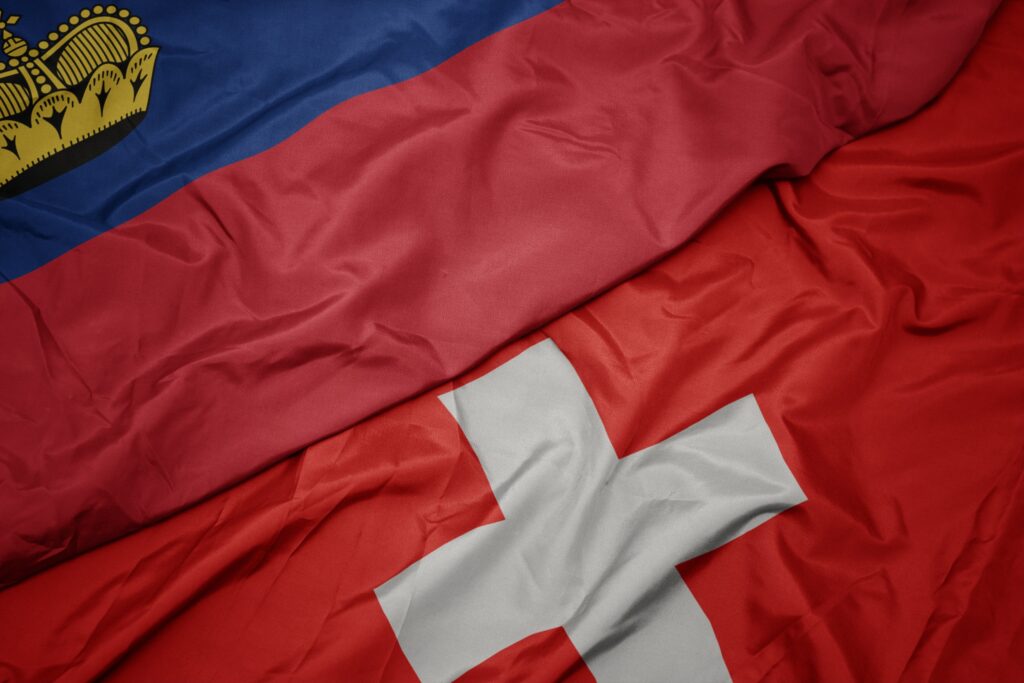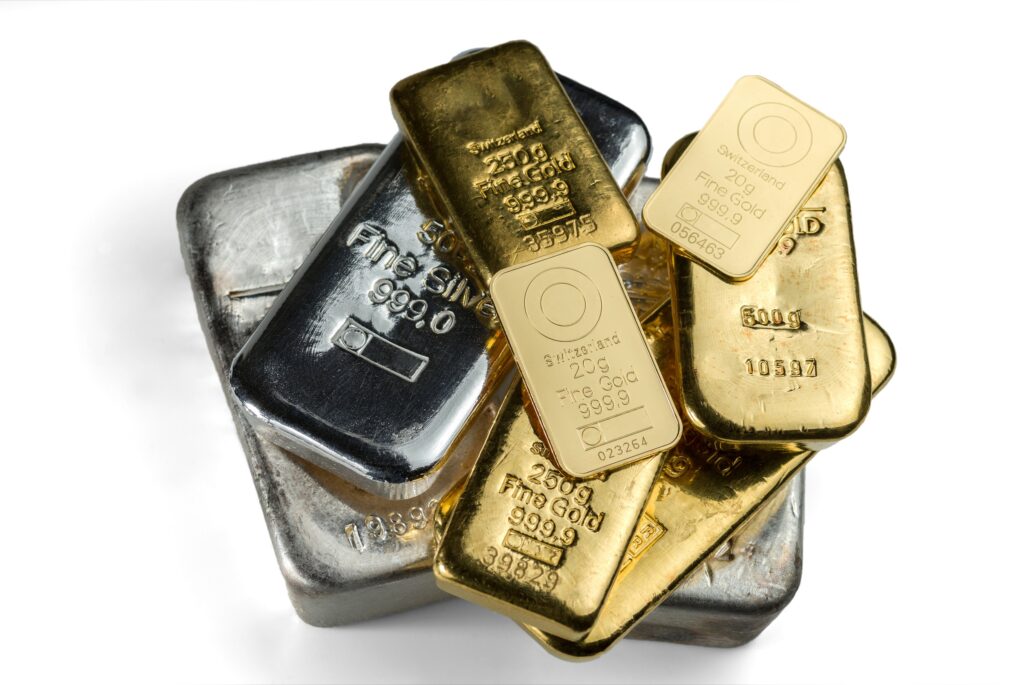Storing gold outside of the EU
Additional information > Prevailing conditions for value storage in Switzerland and Liechtenstein > Gold Outside the EU
Safe deposit boxes outside of the EU: Non-member countries offer certain advantages when investing in precious metals
As long as there were goods to trade in, gold was used as a means of exchange and payment. Its use in this regard goes back to ancient times. The matt, glossy precious metal was also valued at an early stage of history as a form of investment. This was because it could be sold at any time in an emergency. Even in small quantities, it had a high value and was easy to transport.
All of these are unique selling points are just as valid today as they ever were. Furthermore, in times of inflation, negative interest rate policies and global financial crises, gold has shown itself as a commodity that has been able to augment its status. Given the world’s growing population and the finite nature of gold deposits – which come with a high stock-to-flow ratio – it should come as no surprise that gold can benefit from an added value effect over the long term. This is also reflected in the price of gold which – despite fluctuations – has seen a significant upward trend in recent years.
These days, investors can divest their wealth into a variety of gold bars, gold coins or other precious metal forms. In addition to storage in their own country, non-EU states – so-called third countries – offer particularly attractive opportunities to store gold outside the European Union. For example, Swiss Gold Safe provide suitable facilities for these purposes in Switzerland and the Principality of Liechtenstein.

© luzitanija - stock.adobe.com
The advantages of storing gold outside of the EU
A brief look at the financial world will sum up the advantages of storing gold outside the EU. After all, financial experts will already be familiar with the term diversification. This means change, variety or diversity. In other words, diversification simply means that we can take advantage of all the possibilities that are available to us. Today, we have an expanded range of opportunities and markets at our disposal which, ultimately, allows risks to be distributed more evenly and, therefore, minimised. This aspect is particularly important when storing precious metals such as gold, palladium, silver or platinum. According to the diversification model, it is important to note that such metals can also be stored in countries outside the European Union (EU).
Considered to be experts in their field, both Switzerland and the Principality of Liechtenstein are frequently seen as a real alternative to buying and storing precious metals within the EU. This is largely because they are characterised by their solid economic and political environments. Of course, this level of reliability significantly reduces exposure to potentially unforeseeable risks such as a catastrophic failure of the banking system, a global financial crisis or the forced seizure of assets. Positioned in a geographically optimal place in the heart of Europe, both countries have a fully functioning transport infrastructure. For example, they are both easily accessible by car, train or plane from Germany, Austria, Italy or France. Storage of physical precious metals in bank-independent and privately managed vault systems or safe deposit boxes outside of the EU is, therefore, a highly advisable decision to make.
From an international point of view, Switzerland and Liechtenstein also stand for a strict interpretation of how individual property rights should be safeguarded and maintained. This benefits all investors equally. Private gold ownership in countries that are independent of EU regulations means not being subject to any restrictions. For example, precious metals can be stored without reporting their presence to any government agencies. Consequently, the independent and professionally managed high-security systems available at Swiss Gold Safe are highly recommended.
- Here you can find out how to take out a bank-independent safe deposit box in Switzerland. They are suitable for storing precious metals such as gold, platinum or silver, as well as for jewellery or for important or valuable documents.
- Alternatively, you have the option of keeping your physical valuables discreetly in a private safe deposit box in the Principality of Liechtenstein.
A few points to consider when importing and exporting precious metals
Firstly, larger amounts of cash – as well as silver or gold – are subject to certain applicable export regulations from the EU when they cross the border into a non-EU country. All securities that exceed the legally permissible allowance must be registered in advance with the customs office concerned in the country of departure. Fine bullion coins with high values – such as the Australian Kangaroo, the China Panda, the Krugerrand, the Maple Leaf or the Vienna Philharmonic – soon exceed the permitted limits. Investors should take this into account before starting a trip with them. Customs officers will inform you about the current maximum permissible amounts and what reporting and notification requirements apply when crossing borders into non-EU countries. You can find out more on the website of German Customs, for example. Separate regulations apply to other countries.

© vladk213 - stock.adobe.com
When importing into Switzerland or the Principality of Liechtenstein, you must also comply with customs requirements. For example, the importation of precious metals may be subject to sales tax. Metals such as palladium, platinum and silver are all commonly subject to sales tax, for example. Further information on imports into Switzerland or Liechtenstein is available online via the website of the Federal Customs Administration (EZV) , the authority that is responsible for such taxation in both countries.
Advantages of purchasing precious metals in Switzerland and Liechtenstein
Those who think carefully beforehand about the purchase of precious metals can save themselves some import and export problems, because Switzerland and Liechtenstein offer investors a number of purchase alternatives. Clients can buy gold from a large number of dealers – Swiss Gold Safe would particularly recommend Echtgeld AG for such trading purposes.
For cash values of up to 15,000 Swiss francs, precious metals can be traded via so-called cash transactions (over-the-counter transactions) in Switzerland or Liechtenstein.
In addition, both Switzerland and the Principality offer investors the opportunity to purchase and store white precious metals free of VAT.
Swiss Gold Safe also supports you with transportation
Our partner, Echtgeld Ltd, is fully equipped to deliver your precious metals directly to our secure warehouse facilities, so you don’t have to worry about transport. Swiss Gold Safe also supports customers who want to store segregated products – that is, separated items – in transit from their last port of call. International transportation can also be arranged.
Free consultation or questions? Contact us
An overview of gold storage outside the EU:
- Non-EU countries offer alternatives to the storage of physical precious metals inside the EU. This minimises storage risk.
- Switzerland and Liechtenstein are countries that are characterised by a stable economic and political situation. They are also easily accessible geographically.
- Private high-security facilities offer total anonymity and discretion with bank-independent safe deposit boxes. Transportation services and contents insurance are also available.
- The current legal customs regulations of the importing and exporting countries must be observed.
- It is possible to purchase gold direct from precious metal dealers in Switzerland and Liechtenstein. VAT-free storage of silver can be arranged using open bonded warehouses and duty-free warehouses.

